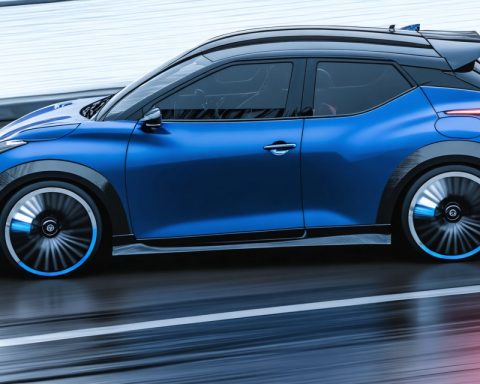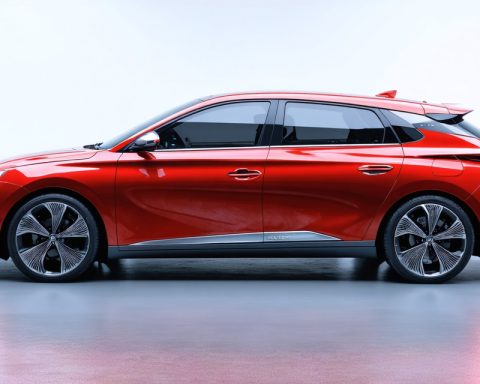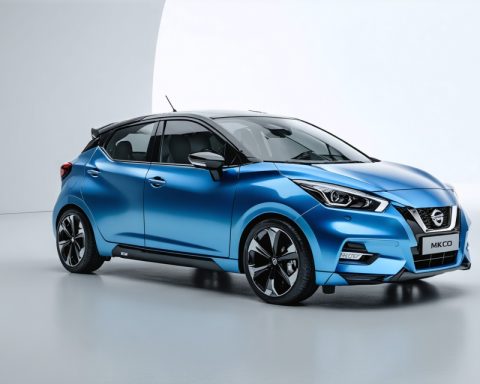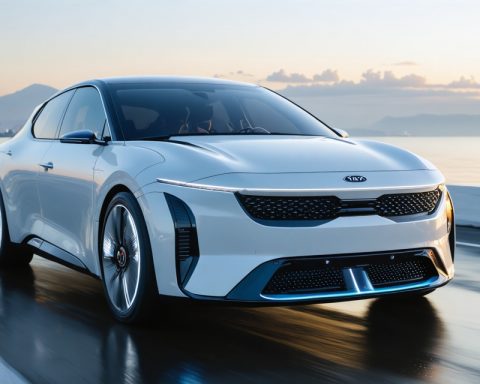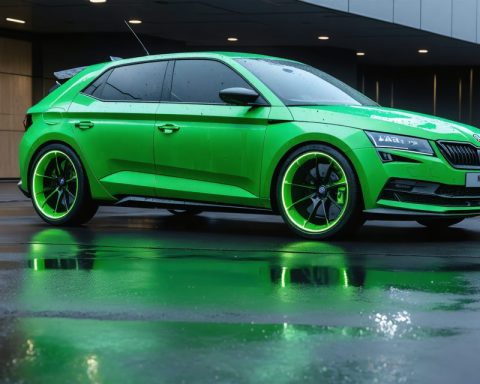- Electric vehicles (EVs) are experiencing rapid adoption, driven by technological advances and changes in tax policies.
- Purchasing an EV before March 31 avoids the initial £10 vehicle excise duty (VED) applicable from April 1.
- Vehicles priced over £40,000 will incur an “expensive car supplement” of £425 annually post-April, adding up to £2,125 over six years.
- All new EVs will be subject to a £195 VED per year starting from year two, regardless of purchase price.
- Company electric cars face an increase in benefit-in-kind (BIK) tax from 2% to 3% this April, with gradual yearly increases planned.
- Consumers are encouraged to buy quickly amid favorable financial conditions but should balance savings against their preferences and needs.
Amidst the whirl of technological advancement, the landscape of transportation is transforming. Electrifying the roads is no longer a vision of the distant future; it’s rapidly becoming the present. Yet, as tax changes loom on the horizon, savvy consumers are asking the big question: Should they hurry to secure an electric car before the April tax adjustments take effect?
The Price Tag Tango
Dashing to buy an electric vehicle might seem like a smart move, especially if you’re eyeing a model over the £40,000 mark. Currently, if you purchase a fully electric car before March 31, there’s a delightful perk: zero vehicle excise duty (VED) for the inaugural year. Delay until April 1 and that once-free ride suddenly costs £10, though admittedly, it’s a modest sum.
However, the financial dance becomes complex when considering vehicles over £40,000. Post-April, these will carry a flashy accessory known as the luxury car tax — officially dubbed the “expensive car supplement.” With this, expect to pay an extra £425 every year, stacked atop the standard VED of £195, during years two to six. Crunch the numbers, and you’ll find yourself a hefty £2,125 lighter over the following six years.
Navigating the Current
The tax update isn’t just a new entry on the grocery list for wealthy consumers. Every new electric vehicle, regardless of cost, will be subject to a standard VED of £195 per annum starting from year two. Even if your car was first christened on the road before April 2017, backtracking isn’t an option; you’ll now owe £20 annually.
For those steering towards more planet-friendly fleets under the £40,000 radar, there’s an oasis of opportunity. Brands from Abarth to Volvo offer tempting electric choices. Be mindful: discounts are alluring, but it’s the manufacturer’s suggested retail price — not the sale price — that dictates your tax fate.
The Company’s Take
The corporate driveway won’t escape this tax revolution either. Electric company cars, previously crowned with minuscule benefit-in-kind (BIK) taxes, will see a bump from 2% to 3% this April. This rate is set to swell by an additional 1% each year through 2028. Still, when juxtaposed against the far heftier BIK rates for petrol or diesel vehicles, the electric route continues to shine as the most fiscally prudent path.
Less Crystal Ball, More Strategy
If you’re contemplating the leap into electric ownership, speed might be your ally — especially if you desire the luxurious end of the EV lineup. Yet, buyers should weigh the potential savings against preferences and practicality. Ensuring value means both treading carefully and thinking ahead. After all, while taxes might be inevitable, planning lets you navigate with fewer bumps on the financial road.
Invest wisely, and join the vanguard of eco-conscious drivers embracing the electrifying shift — all while keeping more of that hard-earned cash in your pocket.
The Future of Electric Vehicles: What You Need to Know Before the April Tax Shift
Understanding the Tax Implications
As the era of electric vehicles (EVs) dawns, rapid adjustments in tax structures are shaping purchasing decisions. Given that the upcoming tax changes will have significant financial implications, savvy consumers are already reconsidering their timelines for purchasing an electric car.
The Financial Breakdown
1. Luxury Car Tax Impact:
– Pre-April 2024 Savings: By purchasing a fully electric vehicle before March 31st, you completely avoid the luxury car tax, saving upwards of £2,125 over six years, especially for cars exceeding the £40,000 threshold. This includes the £10 VED, the £195 standard VED from year two, and the expensive car supplement.
– Post-April 2024 Expenses: Delaying your purchase will result in an additional annual charge of £425 — which, combined with the standard VED, amounts to a more substantial financial commitment.
2. Standard Vehicle Excise Duty:
– Starting in year two, all EVs will face a £195 VED, significantly increasing the cost of electric car ownership beyond the initial purchase phase.
3. Older Vehicles:
– Vehicles registered before April 2017 will now incur a £20 annual fee, highlighting the shift toward equalizing taxation for older and newer EV models.
Corporate Considerations
Businesses are also set to feel the change, with the Benefit-in-Kind (BIK) tax for company vehicles increasing incrementally. Despite this rise, EVs remain advantageous compared to petrol or diesel vehicles due to their comparatively lower tax rates.
Strategic EV Purchase Tips
– Timing Your Purchase: If you’re eyeing a luxury electric vehicle, act before April to dodge the upcoming luxury car tax.
– Opt for Sub-£40,000 Models: Brands such as Tesla, Hyundai, and Nissan offer competitive models below this threshold, allowing you to avoid the tax entirely.
Real-World Use Cases and Trends
– Corporate Fleets: Companies should consider transitioning to electric fleets to capitalize on this year’s lower BIK rates.
– Long-Term Savings: Despite the upfront costs, opting for EVs reduces lifetime expenditures on fuel, maintenance, and taxes.
Future Market Predictions
– EV Adoption Growth: Buoyed by environmental incentives and advancements in battery technology, EV sales are predicted to skyrocket within the next five years.
– Innovations in Charging: Expect broader infrastructure development, such as fast-charging networks, to support the influx of electric vehicles.
Actionable Recommendations
1. Analyze Your Needs: Consider whether a high-end EV justifies its cost and subsequent taxes.
2. Stay Informed: Keep abreast of incentives and market shifts to optimize your purchasing decision.
3. Green Alternatives: Investigate hybrid models if charging infrastructure poses a concern in your area.
For more insights into navigating the transition to EVs and understanding their benefits, visit CNBC.
In conclusion, while the tax adjustments may prompt hesitation, a well-timed purchase and strategic planning can ensure that you benefit from eco-friendly transport while securing financial advantages.


